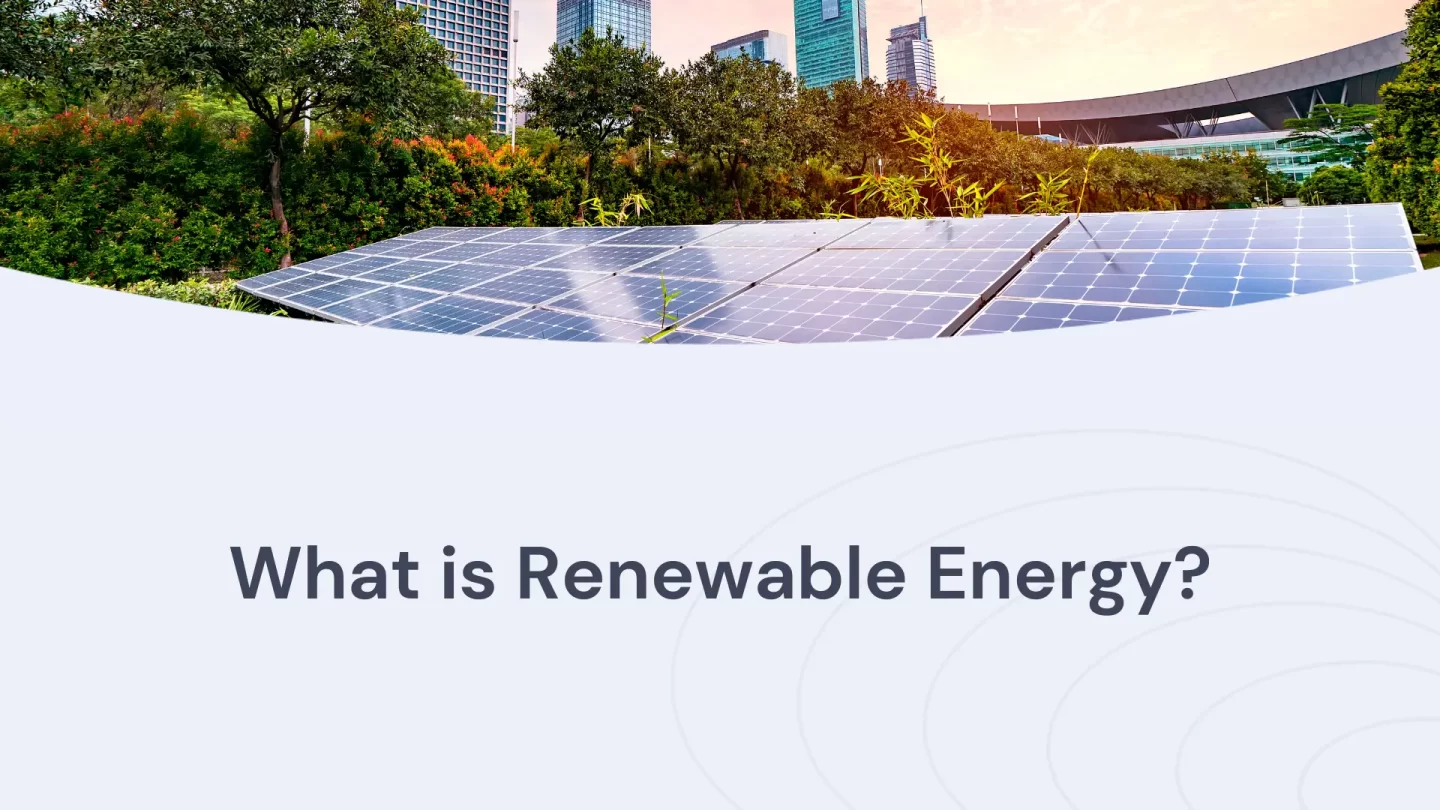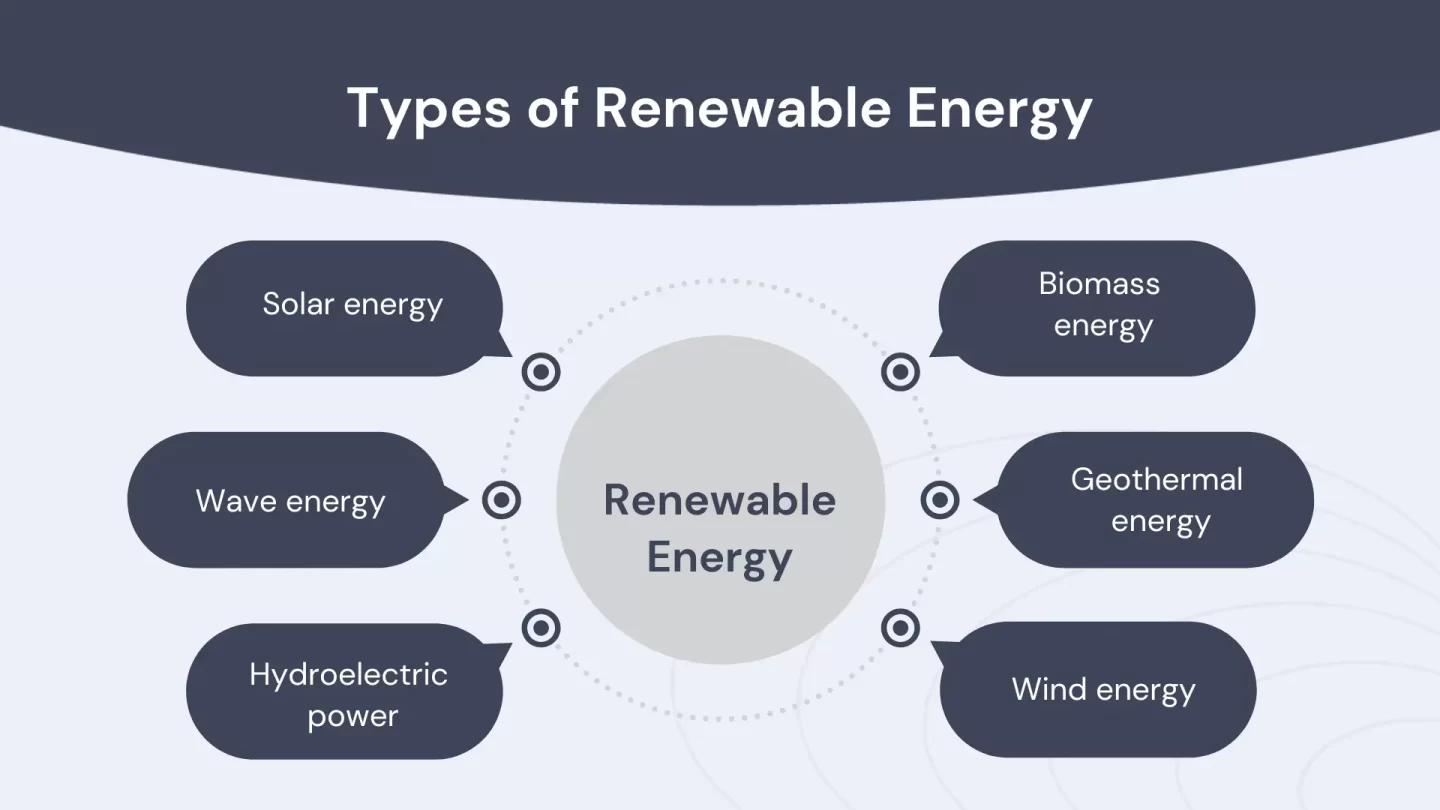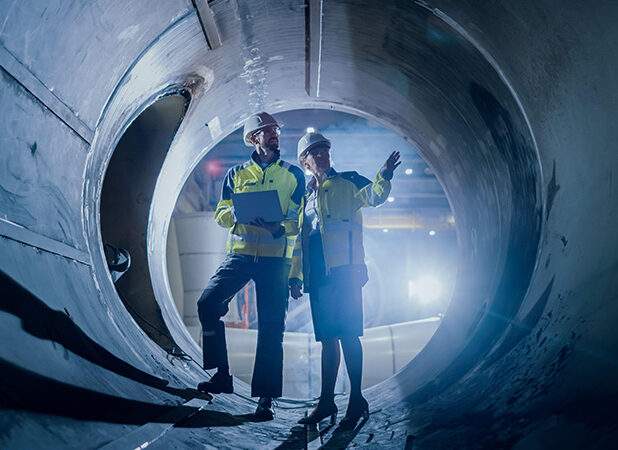What is renewable energy?
It refers to energy sources that naturally replenish and do not deplete. People consider them sustainable and environmentally friendly because they do not produce greenhouse gases or contribute to climate change. They also have the potential to help reduce dependence on non-renewable energy sources such as coal and oil.

Types of renewable energy

The image above shows different Renewable Energy sources.
The most common types include solar, wind, hydro, and geothermal energy:
Solar energy
Solar panels generate solar energy by capturing the sun’s rays and converting them into electricity. These panels contain photovoltaic cells that actively convert sunlight into electricity.
Wind energy
Wind turbines generate wind energy by capturing the energy from the wind and converting it into electricity. Typically, this involves using wind turbines, which have blades that rotate when the wind blows, generating electricity that can be sent to the electrical grid.
Hydro energy
Hydroelectric dams and tidal power stations generate hydro energy by harnessing the power of moving water, such as rivers or ocean currents. These facilities capture the energy from the moving water and convert it into electricity.
Geothermal energy
Geothermal power plants generate geothermal energy by harnessing the heat from the earth’s core. They use this heat to produce steam, which powers turbines to generate electricity.
Advantages and disadvantages
Renewable energy sources have several advantages over non-renewable ones. For one, they do not produce greenhouse gases, which contribute to climate change. They are also considered more environmentally friendly as they do not release harmful pollutants into the atmosphere.
In addition to being environmentally friendly, renewables also have the potential to create jobs and stimulate economic growth. The installation and maintenance of its systems can create jobs in a variety of industries, including manufacturing, construction, and engineering.
Despite the many benefits, there are also some challenges associated with their use. For one, renewable energy sources can be intermittent, meaning that they are not always available when needed. This can create challenges for grid operators who must balance the supply and demand of electricity in real-time.
The initial investment required to install the necessary infrastructure is another challenge. While green energy can save money in the long run, the initial investment can be significant, making it difficult for some individuals and businesses to switch to greener sources.
Conclusion
In conclusion, renewable energy sources are those that are replenished naturally and do not deplete. They include solar, wind, hydro, and geothermal energy. People consider renewables sustainable and environmentally friendly, with the potential to help reduce dependence on non-renewable energy sources. While using renewables does come with some challenges, the benefits they provide make them an attractive option for individuals, businesses, and governments aiming to reduce their carbon footprint and create a more sustainable future.
Frequently asked questions
Renewable energy sources are environmentally friendly and sustainable. They do not produce greenhouse gases, and their installation and maintenance can create jobs and stimulate economic growth.
Wind turbines generate wind energy by capturing the energy from the wind and converting it into electricity. The rotation of the blades produces electricity, which can then be sent to the electrical grid.
Renewable energy sources can be intermittent, meaning that they are not always available when needed, and the initial investment required to install the necessary infrastructure can be significant. This can create challenges for grid operators and make it difficult for some individuals and businesses to switch to renewable energy sources.






